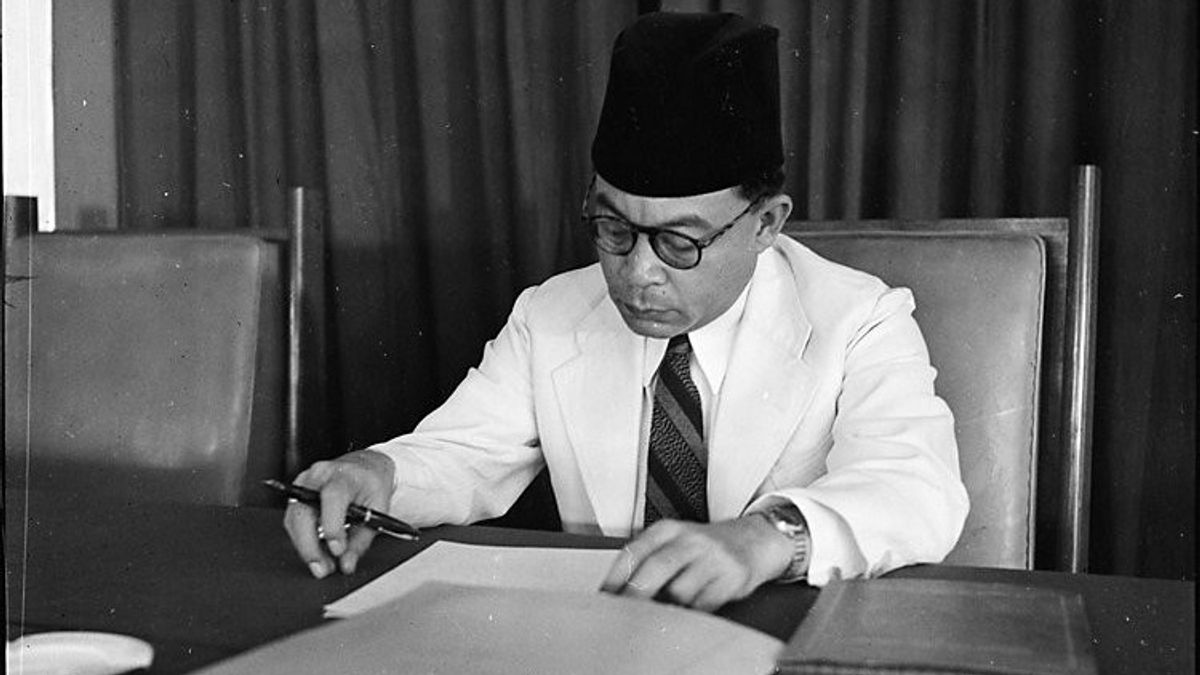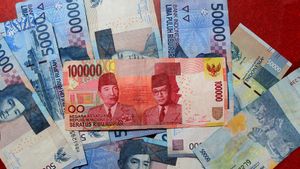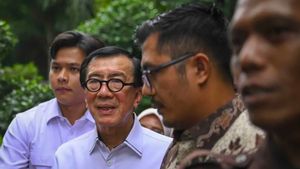JAKARTA - Mohammad Hatta's actions are full of inspiration. Bung Hatta's simplicity in living life is one of them. When he was young, Bung Hatta was not influenced by promiscuity, even after he was old he was not crazy about his position.
The figure of the proclaimer became the perfect embodiment of the nation's hero, whether he was personally or an official. In fact, Hatta was born from a combination of two prominent families: religious leaders and merchants. But Bung Hatta chose his own path of simplicity.
It is possible that many national figures – including Soekarno – who lived during the time with Bung Hatta were familiar with poverty. However, Bung Hatta in his life did not feel that way.
The reason is that Bung Hatta was born from a rich family line in Minang land. Bung Hatta was pampered, even his life was quite well off. In fact, Bung Hatta discovered poverty from observing his nation which was increasingly impoverished under Dutch colonial rule.
Even though he was born into a rich family, Bung Hatta's life was far from extravagant. In many ways, Bung Hatta preferred the road as a patient, rather than taking advantage of the opportunity to become rich.
This view of simplicity further aroused his populist attitude when studying in the Netherlands. It was in this colonial land that Bung Hatta understood that the struggle was entirely for the independence of Indonesia.
“Fast, precise, and orderly, that's the legacy I brought from Prins Hendrik School (PHS Batavia). Education at the Handels-Hogeschool in Rotterdam perfected it. 'Doing for Allah,' which became the basis of my education from home also shaped me as I was in lessons, education, and the nation's struggle for the nation and state during my life. Seek the truth, demand the truth, apply the truth in society, always be my guide in all actions," said Bung Hatta in his book Mohammad Hatta: Memoir (2002).

The process of struggle even made Hatta's figure even simpler. He didn't want to be extravagant, nor did he take something that didn't belong to him. Simplicity that has been agreed by many people. The second President of the Republic of Indonesia, Suharto, for example.
The Smiling General always remembers Hatta as a figure that all Indonesians need to emulate. Moreover, after returning from the Netherlands, Bung Hatta could actually live happily as an economics scholar.
Nevertheless, Bung Hatta still chose the path of struggle. This struggle then led him to taste the suffering during his exile by the Dutch colonial government in Boven Digoel (1935) and Banda Neira (1936).
Exile after exile then further perpetuated Bung Hatta's humble figure. Therefore, in that simplicity lies the strength, greatness, and majesty of the figure who was once the First Vice President of Indonesia.
"We all need to learn from Bung Hatta's life," Suharto was quoted as saying in the book of the Second President of the Republic of Indonesia, Great General HM Suharto in the News (2008).
Bung Hatta's simplicity in memoriesNot a few national figures revealed that if you want to learn simplicity, then learn from Bung Hatta. That view is not an empty message. Until the end of his life, Bung Hatta lived in simplicity.
Bung Hatta was reluctant to worship excessive pleasure, nor did he want to use money that was not his right. This attitude was even expressed by his friend Soekarno in a slightly sarcastic tone. In Soekarno's eyes, he considered Hatta too serious.
“Hatta and I have never been on the same wave. The best way to describe Hatta's personality is to tell about an incident one afternoon, when he was on his way to a place and the only other passenger in the vehicle was a beautiful girl. Somewhere lonely and isolated a tire burst. Jejaka Hatta is a person who blushes when he meets a girl. He never dances, laughs or enjoys this life,” said Bung Karno as quoted by Cindy Adams in Bung Karno's book: Connecting the Tongue of the Indonesian People (1965).
Hatta, according to Bung Karno, did not act excessively. When the driver went to seek help for two hours, Bung Hatta was found sleeping in a corner far from the girl. Bung Hatta also showed other forms of simplicity when he was still the Vice President.

Bung Hatta never once took money that was not his right. As told by Bung Hatta's former personal secretary, I Wangsa Widjaja. His secretary told me that every month there was always money left over for the routine budget for the vice president's household expenses.
The money is always returned to the state treasury. on other occasions too. Bung Hatta always refused to give envelopes from regional officials, because his travel and lodging expenses had been financed by the state.
Bung Hatta's simplicity was increasingly seen when he resigned from his vice president position in 1956. As a result, Bung Hatta did not get a salary anymore. The only income comes from a meager pension as vice president.
So small, the money is not enough to pay the entire house bill, from water, electricity, and telephone bills. Actually, if he wanted, Bung Hatta could be a commissioner in various companies. The option was not exercised.
For the sake of looking for additional, Bung Hatta tried to enter the world of writing and teaching. After that, Bung Hatta was greatly assisted by the Governor of Jakarta, Ali Sadikin (1966-1977) who proposed Bung Hatta to become the main citizen of the city. Because of that, some of Bung Hatta's bills were paid by the DKI Jakarta government.
“He had difficulties with paying PAM and the Regional Rehabilitation Fee (Ireda). That's how simple our leader's life is. I do not know exactly how much pension he received at that time. But with such news reaching me, I was moved to hear it. I immediately searched for ideas, looking for ways that I could do what I could to help him, “said Ali Sadikin as quoted by Ramadhan KH in the book Bang Ali: Demi Jakarta 1966-1977.
Not only that, Bung Hatta's simplicity was also reflected in his stubborn desire not to be buried in the Heroes Cemetery (Kalibata). In a will written in 1975, or five years before he died on March 14, 1980, Bung Hatta stated that he did not want to be buried in the hero's grave.
Bung Hatta said he wanted to be buried in the graves of ordinary people so that he would always be close to the people for whom Bung Hatta had been fighting for. “Bung Hatta's main thoughts are of course closely related to his personality as a Muslim who is permitted by the Shari'a to have four wives. The four wives of Bung Hatta are: First, Indonesia. Second, the nation. Third, the job. Fourth, Mrs. Rahmi Hatta," Rosihan Anwar in the book Small History "Petite Histoire" Indonesia Volume 5 (2012).
*Read other information about HISTORY or read other interesting articles from Detha Arya Tifada.
Other BERNASThe English, Chinese, Japanese, Arabic, and French versions are automatically generated by the AI. So there may still be inaccuracies in translating, please always see Indonesian as our main language. (system supported by DigitalSiber.id)












